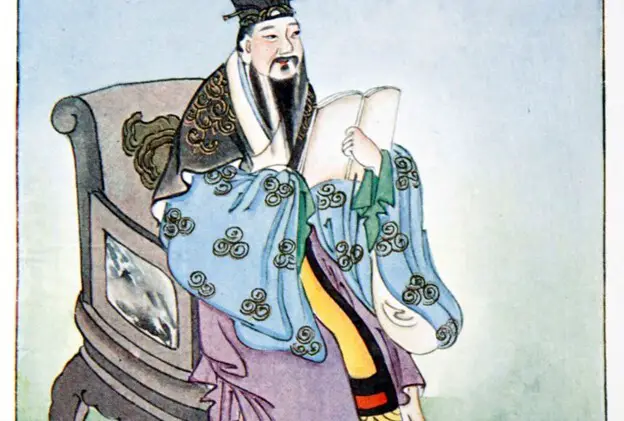|
Getting your Trinity Audio player ready...
|
Confucianism, a philosophical and ethical system that has shaped Chinese culture for centuries, teaches us about the importance of relationships, self-cultivation, and virtue. But what are the core Confucian beliefs that define Confucianism and how do they reveal the deeper truth about human nature?
This is the second article in a two-part series on Confucianism. The first article is called – Who was Confucius and why was he Important. There we provide a brief introduction to who Confucious was, what his main teachings were, and the enduring legacy of these teachings.
In this article, we deal with the Relationships, Ren and Li, Filial Piety, and The Analects to uncover the most important and revealing Confucian beliefs. Those beliefs continue to shape the way we think about morality and the human experience.
Join us on a journey to discover the wisdom of Confucius that has stood the test of time and remains as relevant today as it was thousands of years ago.
Confucious’ Five Relationships

Relationships are at the heart of Confucianism. Confucious outlined the five fundamental relationships that we will be a part of within our lives:
- The ruler and subject
- The father and son
- The elder and younger brother
- The husband and wife
- The friend and friend
For Confucious, there is also heavy overlap in the way that these relationships operate. Confucianism sees relationships as hierarchical. Everyone has their role in relationships (and in society). When these roles are respected, harmony is maintained. Confucianism rests largely on the idea that relationships are a two-way street.
Just as respect must be given by the member lower in the hierarchy, the member higher in the hierarchy must provide and teach. Each role holds its various responsibilities, and each person will simultaneously (and over time) hold many different roles.
The political sphere is seen as an extension of the family unit. When the hierarchical system is in working order within the household, this primes the household members to respect their role in other social and political contexts.
Filial Piety
The Confucian ideal of respecting parents, elders, and ancestors, filial piety is a virtue, and is seen as foundational in that all others stem from it.
Children are expected to treat their parents with reverence. They should be obedient in their behavior toward them and should act in the outside world in a way that brings pride to the family. Affection to living elders should be shown, and ritualistic sacrifices should be made to ancestors and late family members.
Filial piety demands that we acknowledge the wisdom and virtue of our elders and ancestors.
Filial Piety in Modern Society
Unsurprisingly, filial piety is still heavily observed as a virtue in most societies, today. The mark that Confucious has left on the modern family in China is clear. It is culturally expected that children will take care of their parents and grandparents as they age. This is a central Confucian belief.
In the West, this kind of practice is uncommon. It is more usual to see ‘nuclear’ families – exclusively parents and children living together. Western societies are more likely to have senior living facilities and place less weight on tangible respect for the elders.
Confucianism left an undeniably positive mark on Eastern societies, and Western societies could benefit from adopting a sense of filial piety.
Ren and Li

The concepts of ren (humaneness or benevolence) and li (propriety or ritual) are a cornerstone of Confucianism.
Ren refers to the kind and empathetic treatment of others. It can roughly be translated to benevolence and it means holding compassion in all social situations.
Li encapsulates the rules of social interaction, and emphasises acting in a respectful, harmonious, and appropriate manner. And it means following political and social order.
Ren and Li are heavily interconnected, and Confucious believed they are both key to a harmonious political, social, and personal landscape. Ren provides motivation for us to act ethically, while Li provides us with a framework for how to act ethically within our society. Together, they form the core of Confucian moral beliefs.
The relationship between Ren and Li is further explored by Philosopher Chenyang Li, in a piece titled Li and Cultural Grammar: On the Relation between Li and Ren in Confucius’ “Analects”.
Education is a key to achieving a sense of Ren and Li. A central tenant of Confucianism, education was emphasised by Confucious as the way by which we can optically act in accordance with Ren and Li.
Ren and Li in Modern Society
There will never be a time or place where Ren and Li are not relevant.
In personal relationships, Ren encourages that we care for, listen to, and empathise with those around us. Li helps us to communicate with them in a way that is culturally and societally sensitive, respectful, and considerate. We can remind ourselves of the concepts of Ren and Li in our interactions with family, friends, coworkers, and even strangers. According to Confucious, this means reminding ourselves that acting with compassion and respect will always be the more fruitful approach –.
Modern education could also benefit from a heavier focus on fostering empathy and compassion in students.
The Analects
Unfortunately, we do not know of any formal philosophical writings left behind by Confucious. Most of what we have discussed above is known from teachings disseminated to us through his disciples. The most fulsome account of his teachings is found in a book thought to be crafted by his students: The Analects.
The Analects is a collection of short passages and sayings that have been attributed to Confucious. It covers Confucious’ beliefs on morality, politics, education, and relationships.
Key quotations from the Analects for Modern Life

The Analects holds many revealing quotes about Confucious’ beliefs. In this section, we explore a few Confucian quotes that are relevant today.
“If a craftsman wants to do good work, he must first sharpen his tools.”
Analects
This quote illustrates Confucious’ emphasis on education. Education allows us to sharpen the tools we use in our work, relationships, and our minds.
“I am not one who was born with great wisdom. I love the ancients and diligently seek wisdom among them.”
Analects
While Confucious – an ancient of our time – may show humility, it is true that we are all capable of learning from the greats of the past. This quote exemplifies not only Confucious’ love for wisdom, but his appreciation of the wisdom of elders, ancestors, and ancient thinkers.
And finally, and perhaps most beautifully:
“The noble-minded encourage what is beautiful in people and discourage what is ugly in them. Little people do just the opposite”
Analects
This encapsulates so much of Confucious’ teachings. It exemplifies his emphasis on education, growth, and virtue, and highlights his gentleness, empathy, and humanity. It touches on the duty and responsibility to encourage others, and on the duty to foster the good in us.
Applying Confucianism to Modern Life

Confucianism is as much a political philosophy as it is a relational philosophy. Confucious aimed to teach us how to live with one another in harmony.
Modern life is often not conducive to giving relationships the kind of respect, cultivation, and nourishment that Confucianism teaches. The work/life balance, the internet and social media, and our own political climate, can make it difficult to prioritise the people in our lives.
In Summary
Confucianism is a tapestry of beliefs and values that is woven through Chinese culture and history. To understand the core of Confucianism and how it reveals the deeper truth about human nature. We’ve explored the Relationships,
- Ren and Li,
- Filial Piety, and
- The Analects.
We have also explored the relevance of these ideas to modern living.
From the importance of respect and duty in relationships, to the cultivation of humaneness and propriety, Confucianism teaches us about how to lead a fulfilling life. It reminds us of the beauty and power of tradition, and the value of wisdom passed down through the generations.
Confucianism is not just an ancient philosophy; it is a living tradition that continues to shape the way we think about morality and the human experience. It’s a call to be better, to be more compassionate, and to be more humane.
“It does not matter how slowly you go as long as you do not stop.”
Confucius
The legacy of Confucianism leads us to strive toward a more virtuous and harmonious society.
FAQs
Q: What is Confucianism?
A: Confucianism is a Chinese ethical and philosophical system that is deeply rooted in Chinese culture and history. It emphasises the importance of relationships, self-cultivation, and virtue.
Q: What are the Five Relationships in Confucianism?
A: The Five Relationships in Confucianism are:
- ruler and subject,
- father and son,
- elder and younger brother,
- husband and wife, and
- friend and friend.
These relationships are considered essential for maintaining harmony and order in society.
Q: What is the meaning of Ren and Li in Confucianism?
A: Ren refers to humaneness or benevolence and Li refers to propriety or ritual in Confucianism. These concepts are closely interrelated, with Ren representing the inner qualities of a person and Li representing the outward expression of those qualities.
Q: What is Filial Piety?
A: Filial piety is a key Confucian virtue and refers to the respect, duty, and love that children should have for their parents. It is considered the foundation of all other relationships and is seen as essential for creating a harmonious society.
Q: What is the Analects?
A: The Analects is a collection of sayings and teachings attributed to Confucius, the founder of Confucianism. It is considered one of the most important Confucian texts and contains many key Confucian beliefs. It has had a profound influence on Chinese culture and continues to be studied today.
Q: How do Confucian beliefs continue to be relevant today?
A: Confucian beliefs continue to be relevant today as they provide valuable insights into human nature and morality. They remind us of the importance of respect, duty, and self-cultivation, and the value of wisdom passed down through generations. Confucianism is not just an ancient philosophy; it is a living tradition that continues to shape the way we think about morality and the human experience.

